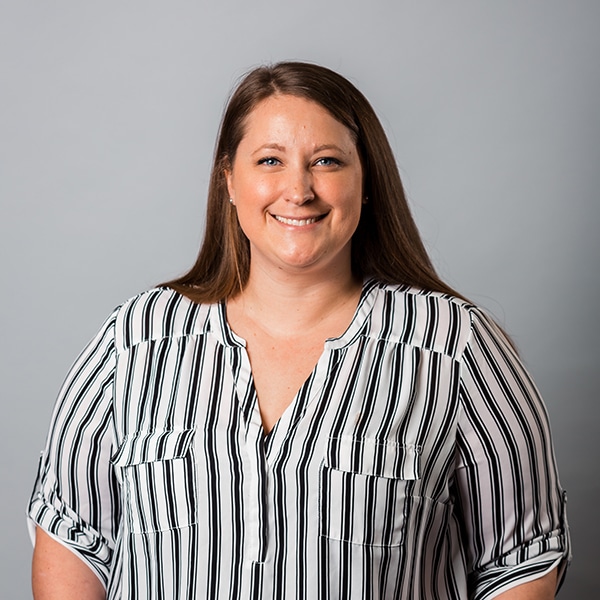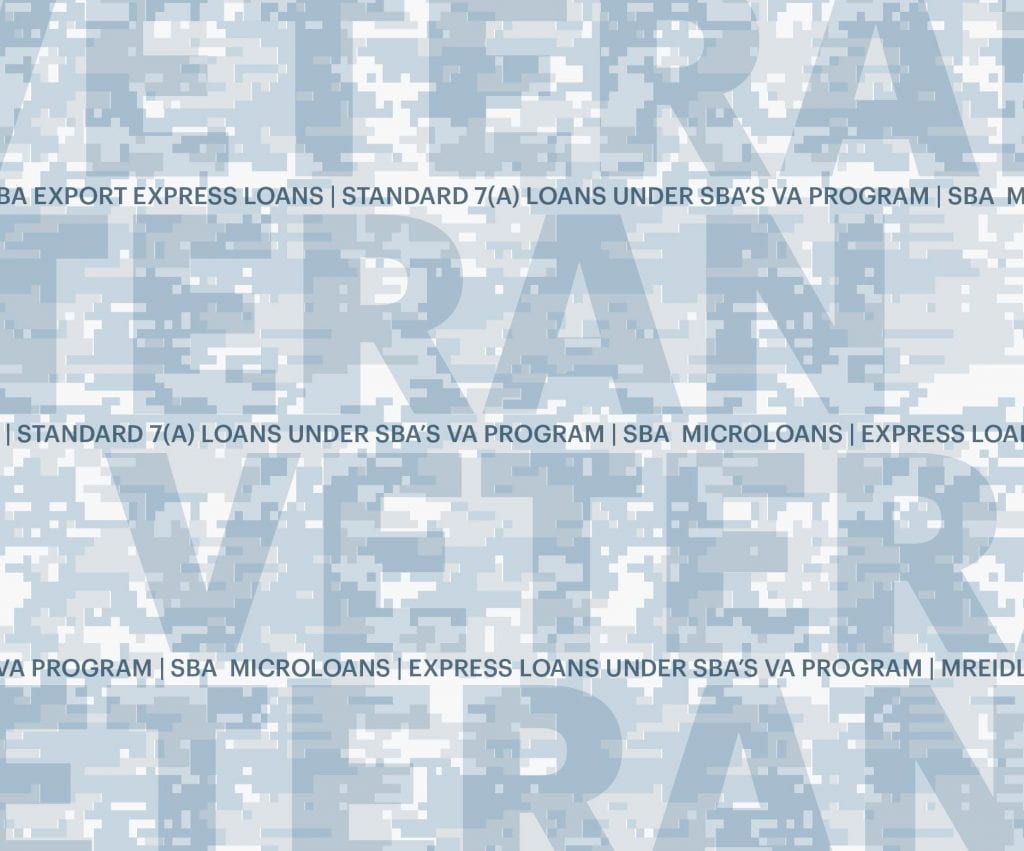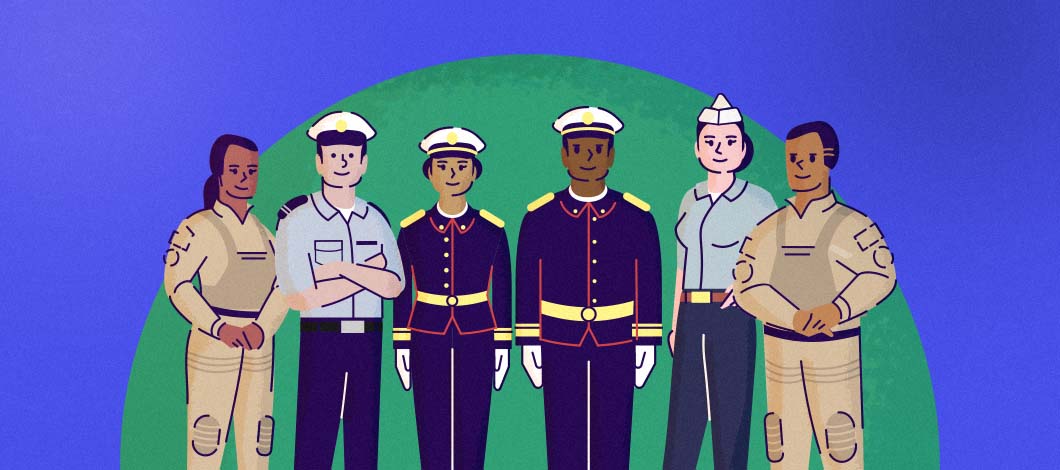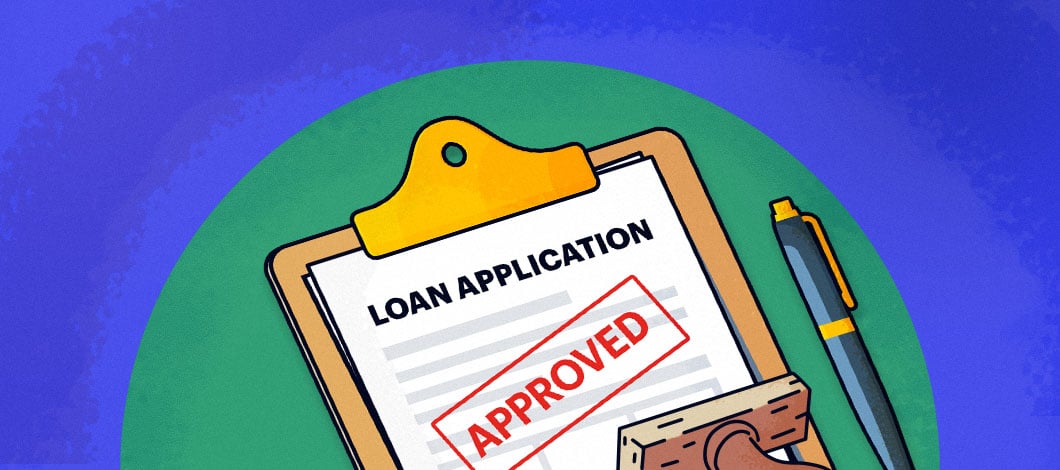If you’ve served in the armed forces and are looking for funds to expand your business, there are financing options available to you. To apply for business loans for veterans, you must fall into 1 or more of the following categories:
- Military veteran
- Service-disabled veteran
- Active-duty service member participating in the Transition Assistance Program (TAP)
- Current spouse of a member of any of the above groups or spouse of Reservist or National Guard member
- Widowed spouse of a service member who died during service or due to a service-connected injury or disability
Let’s go through the best options for small business loans for veterans. From Small Business Administration (SBA)-backed loans to commercial loans for veterans and financing with alternate lenders, you can find the funding to meet your small business’s needs.
Did You Know?
Veteran-owned businesses account for 5.7% of all U.S. businesses (more than 331,000), generate $963.4 billion in receipts and employ 4 million people, according to 2019 data from the 2020 annual U.S. Business Survey.
SBA Loans for Veterans
The SBA helps thousands of borrowers each year, including veterans. Guaranteeing a portion of issued loans, the SBA reduces lenders’ risks and increases your chances of funding approval — even if you’ve been unable to qualify for traditional bank financing. The following loans are well-suited to the small business challenges you face.
| Loan | Amount | Terms | Rates | Notes |
| MREIDL | Up to $2 million | Up to 30 years | 4% | For businesses with employees called into active duty |
| Standard SBA 7(a) Loans | Up to $5 million | Up to 25 years for real estate; 5-10 years for equipment and working capital | Maximum interest rates range from the prime rate plus 2.75% for loans more than $50,000 with terms longer than 7 years to the prime rate plus 4.25% for loans up to $25,000 with term lengths 7 years or fewer. | SBA guarantees up to 85% for loans of $150,000 or less and 75% for loans greater than $150,000. |
| SBA Express Loans | Up to $350,000 | Up to 25 years for real estate; 5-10 years for equipment and working capital | Rates are capped at the Prime Rate plus 6.5% for loans $50,000 or less and Prime plus 4.5% for loans over $50,000. | The SBA guarantees up to 50% of the loan |
| SBA Microloans | Up to $50,000 | Up to 6 years | 8%-13% | Nonprofit, community-based organizations process these loan applications |
Military Reservist Economic Injury Disaster Loans (MREIDL)
Military Reservist Economic Injury Disaster Loans help businesses stay operational when an owner or essential employee is called to active duty from the Reserves or National Guard.
Funding is used to cover the costs of running the business until the owner or employee returns.
To acquire an MREIDL business loan for veterans, you must show an inability to find affordable financing through other lenders. This means you’ll need to look into acquiring loans directly from banks before applying for the program.
To qualify, you’ll also have to explain how the business will suffer from the absence of the employee. If the employee is directly responsible for much or all of the business’s operation or sales, you may be eligible.
Funding cannot be used to refinance debt or expand your business. It is designed to help veteran small businesses stay afloat until the employee returns from active duty.
The MREIDL business loan for veterans offers rates as low as 4%, rivaling what you could get from a bank. Terms go up to 30 years depending on your qualifications and loan size, which is maxed out at $2 million. That maximum can be waived, though, if your business is deemed a major employer and you can prove the additional funding will keep jobs intact.
Note: The MREIDL program requires collateral for all loans over $50,000. The SBA won’t decline you for lack of collateral but will take all available collateral you have. If you don’t have the assets to satisfy this requirement, you might qualify for an unsecured business loan.
SBA 7(a) Loans
When you’re looking for SBA loans for veterans, you’ll find the 7(a) program is a popular option for borrowers.
The SBA guarantees up to 85% for loans of $150,000 or less and 75% for loans greater than $150,000. Loan amounts vary, but the maximum limit is $5 million. Terms also vary, going up to 25 years.
Maximum interest rates range from the prime rate plus 2.75% for loans more than $50,000 with terms longer than 7 years to the prime rate plus 4.25% for loans up to $25,000 with term lengths 7 years or fewer.
SBA Express Loans
Obtaining an SBA Express loan for a veteran-owned business is a quick, simple way to secure funding. Instead of waiting months to be approved for other 7(a) loans, you could be accepted within 36 hours and receive funding in as little as 30 days. The maximum borrowing amount is $350,000.
In exchange for the quick turnaround time, the SBA only guarantees up to 50% of these loans. This makes it slightly more difficult to be approved, but the smaller lending amounts balance out some of the risk lenders consider.
Interest rates for Express loans under the SBA Veterans Advantage program are capped at the Prime Rate plus 6.5% for loans $50,000 or less and Prime plus 4.5% for loans over $50,000. As of Dec. 15, 2022, the Prime Rate was 7.5%. These percentage rates are likely higher than what you can get with a regular bank loan, but considerably lower than what you’ll find with private, hard-money lenders that offer high-interest loans.
The Veterans Administration and Lending
The Veterans Administration (VA) provides several benefits and services; however, it doesn’t offer financing, so you can’t obtain a specific “VA SBA loan” or “VA commercial loan” to fund your business.
Also, note that the SBA Veterans Advantage program is no longer active. This initiative offered SBA 7(a) and Express loans with capped interest rates and waived guaranty fees for veteran borrowers.
SBA Microloans
For those who don’t need to borrow hundreds of thousands, SBA microloans are a good option.
The maximum amount for these loans is $50,000.
These loans are made by third-party lenders who are usually nonprofit, community-based organizations. Loans cannot be used to purchase commercial real estate or refinance existing debt.
Borrowers are usually required to offer a personal repayment guarantee as well as collateral.
Interest rates for this type of small business loan for veterans and others generally fall between 8%-13%, with additional loan packaging fees possible.
Discover Your Best Business Loan Options
Alternative Financing and Business Loans for Veterans
While not all applicants meet the criteria necessary to secure popular SBA and commercial business loans for veterans, there are other funding options that can get you the capital you need to grow your business.
| Financing Type | Amounts | Terms | Rates | Notes |
| Equipment Financing | Up to 100% of the equipment’s value | Ranges from 1-5 years | Can start at 8%, depending on the lender | Some lenders can require a 10%-20% down payment |
| Short-Term Business Loans | Up to $500,000, depending on the lender | Up to 18 months | Can start at 10%, depending on the lender | Daily or weekly repayments could be required |
| Business Line of Credit | Up to $250,000, depending on the lender | Ranges from 6 months to 3 years | Can start at 8% | Funding can be received the same as approval |
| Merchant Cash Advances | Up to $500,000, depending on the lender | Ranges from 3 to 24 months | Factor rate can start at 1.10 | Same-day funding available |
Equipment Financing
Equipment financing can help your company purchase expensive machinery. You can receive up to 100% of the value of the equipment you wish to purchase.
Equipment financing is a great option for veteran-operated businesses in the restaurant, technology and construction industries.
Short-Term Business Loans
Short-term business loans are a good fit for veteran-owned small businesses because they don’t require you to commit to a long-term contract that can tie up future cash flow.
Through the funding partners at Fast Capital 360, you could acquire up to $500,000, which may be used for most general business purposes.
Repayment terms can go up to 18 months, meaning you’ll keep your finances flexible for the future.
Business Line of Credit
A small business line of credit is suitable business financing for veterans who have revolving needs for working capital.
The withdrawal process works similarly to a business credit card, but repayment is different. You withdraw funding from your credit limit as you need it, using it for everyday working capital or a special project.
Instead of having a minimum monthly payment, you’ll pay regular installments for a specified period of time until you’ve paid the balance down to $0. After that, you’ll be free to withdraw more funding up to your limit.
Merchant Cash Advances
If your veteran-owned business needs quick access to funding, merchant cash advances are a potential solution. While not a loan, with a merchant cash advance, you’re committing a slice of your future revenues. Payment is either withdrawn from a percentage of your credit card sales or from Automated Clearing House (ACH) payments, which electronically deduct funds from your bank account.
Since this funding product is distributed against your sales, the qualifications for approval aren’t as strict as other options.
Why Consider an Alternative Lender?
If a bank or credit union is going to approve any commercial loans for veterans or civilians, they’ll often require the borrower to have a good business credit score and lengthy credit history. Having an existing relationship with the bank or credit union can also be a key approval factor. In addition to these requirements, traditional lenders have lengthier application processes, and it could be several weeks before your application is approved and you receive funding.
In contrast, alternative or online lenders focus on your business’s overall health and have less strict requirements for applicants; for example, you could still be approved even if your business has been operating for only 1 year or if you have a credit score of 600. Also, the web-only application process for alternative lenders can take mere minutes, and you can receive same-day funding after approval.
Hivers & Strivers Angel Investment Group
These investors are an option if you’re looking for startup business loans for veterans. Early round check amounts range from $250,000 to $1 million, according to the group’s website.
Subsequent funding rounds depend on the business’s performance, with Hivers & Strivers’ goal being “[producing] high returns north of 20%.” You don’t have to repay this financing because angel investors usually provide funding in exchange for equity in your business.
Hivers & Strivers invest exclusively in veteran-owned businesses. In addition to financial backing, the investment group, “will appoint source key board members, advisors and help open doors by providing counsel and offering expertise,” the website states.
Small Business Grants for Veterans
Applying for a grant can provide your veteran-owned business with funding you don’t have to repay. You can receive thousands of dollars from nonprofit organizations’, for-profit companies’ and even government agencies’ grant programs. Some grant winners also receive mentorship and other learning opportunities to help their business’s operations and marketing efforts.
However, your odds of winning funding can be slim because grants offer such a financial boon, leading to fierce competition from other applicants. Also, note that grant funding can come with conditions about how it can be spent.
Learn more about small business grants for veterans.
How to Apply for a Veteran Small Business Loan with the SBA
SBA lenders need to vet your application as if you were applying for any other loan. Let’s take a look at what you’ll need to apply.
To receive military small business loans, you’ll be required to provide documentation to both the SBA and the lender proving your veteran status. Whether you’re seeking business loans for disabled veterans or small business loans for women veterans, there are funding options out there to meet your needs. Depending on your veteran classification, you’ll need to gather the following:
- Veteran: Copy of DD Form 214
- Service-Disabled Veteran: Copy of DD Form 214 or documentation from the Department of Veterans Affairs
- Transitioning Active-Duty Servicemember: DD Form 2, Armed Forces Identification Card, DD Form 2648 or DD Form 2648-1
- Reservist or National Guard Member: DD Form 2, Armed Forces Identification Card
- Spouse of Veteran: Evidence of spousal status and spouse’s DD Form 214
- Spouse of Transitioning Active-Duty Servicemember, Current Reservist or National Guard Member: DD Form 1173, Armed Forces Family Member Identification Card and evidence of spousal status
- Widowed Spouse of Active-Duty Servicemember or Veteran Who Died from a Service-Connected Disability: Documentation from the Department of Defense or from the Department of Veterans Affairs
In general, you’ll need at least a 640 credit score to qualify for SBA loans, including SBA express loans and the MREIDL program. Note that the minimum score requirement can vary by lender and program. Due to the lower principal amounts, microloans don’t have requirements as high as other SBA options. You’ll need a credit score of around 620 for your application to be considered.
Business Loans for Veterans with Bad Credit
If you haven’t been in business long enough to build your credit score or if a major setback impacted your score, it can be challenging to find business funding. However, even if your credit score is below 620, some financing options are still attainable, including the following:
- Merchant cash advance
- Short-term loans
- Equipment financing
- SBA microloans
Some small business loans for veterans with bad credit are also available for borrowers who have a cosigner with a stronger credit score and history.
Are There Startup Business Loans for Veterans?
Getting a company off the ground can mean paying thousands of dollars in startup expenses — no matter the size of your business. The SBA reports that even a microbusiness or home-based business can run $2,000-$5,000 in early costs, which can include permits, furniture, office supplies and equipment. If you’re starting a small business with salaried employees and office space, your total costs can be more than $100,000, according to Business News Daily.
If you need help to fund your venture’s early days, there are startup business loans and other finance options for veterans.
SBA Microloans
If you need $50,000 or less in startup funding and haven’t been able to secure financing from other sources, SBA microloans are a good option for entrepreneurs who have had limited business experience before starting their own companies. Funding amounts range from $500 to $50,000, and maximum maturity terms are 7 years. Borrowers secure financing through nonprofit lenders, rather than conventional banks or online lenders.
Business Credit Cards
There are some advantages to financing your startup costs with a business credit card vs. getting a startup business loan for veterans. For instance, it’s often easier to qualify for a credit card than it is a business loan. Also, using a credit card and making timely payments helps build a strong business credit history. Some business credit cards also offer 0% APR for several months or your first year, which can be helpful when your business is just starting.
However, be aware that a business credit card’s limit will usually be lower than funding you could get through a business loan.
Investors and Investment Groups
Individual investors or investment groups provide equity financing to promising enterprises, aiming for a healthy return on investment. Two types of these investors are venture capitalists (VC) and angel investors. While both can fund your business during its early stages, angel investors finance smaller operations and tend to be less involved in your business’s operations compared to venture capitalists.
Personal Loans
A startup company won’t have a business credit score or history or reported revenue, so it can be difficult to secure financing without a record of financial stability and success. However, if you have a strong personal credit history, you could qualify for a personal loan to fund your veteran-owned business. Personal loans are helpful if business loans are unattainable, and you likely won’t have to put up collateral to be approved for funding. However, personal loans aren’t usually more than 5-figure amounts, and repayment terms are often less than 10 years. In contrast, some business loans for veterans offer six-figure financing and can be repaid over 25 years, depending on the type of financing.
Choosing a Business Loan for Veterans
Business loans for veterans and other service members can allow you to achieve personal and professional success.
Whether you’re just starting out or trying to expand your business, there are plenty of options out there. Some are specifically tailored for veterans, while others are suited for your challenges as a veteran-owned business.
Now that you understand how to get a veteran small business loan, once you decide which option is best for you, simply gather all of the required documentation and begin the application process. Once you receive your business loan for veterans, you’ll be free to create the future you envision for your small business.
At Fast Capital 360, we thank you for your service. If you need any help finding the best loan options for your company, one of our expert Business Advisors will help guide you every step of the way.






